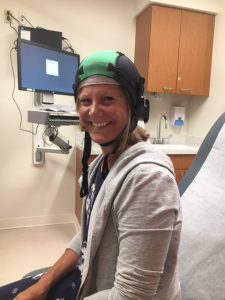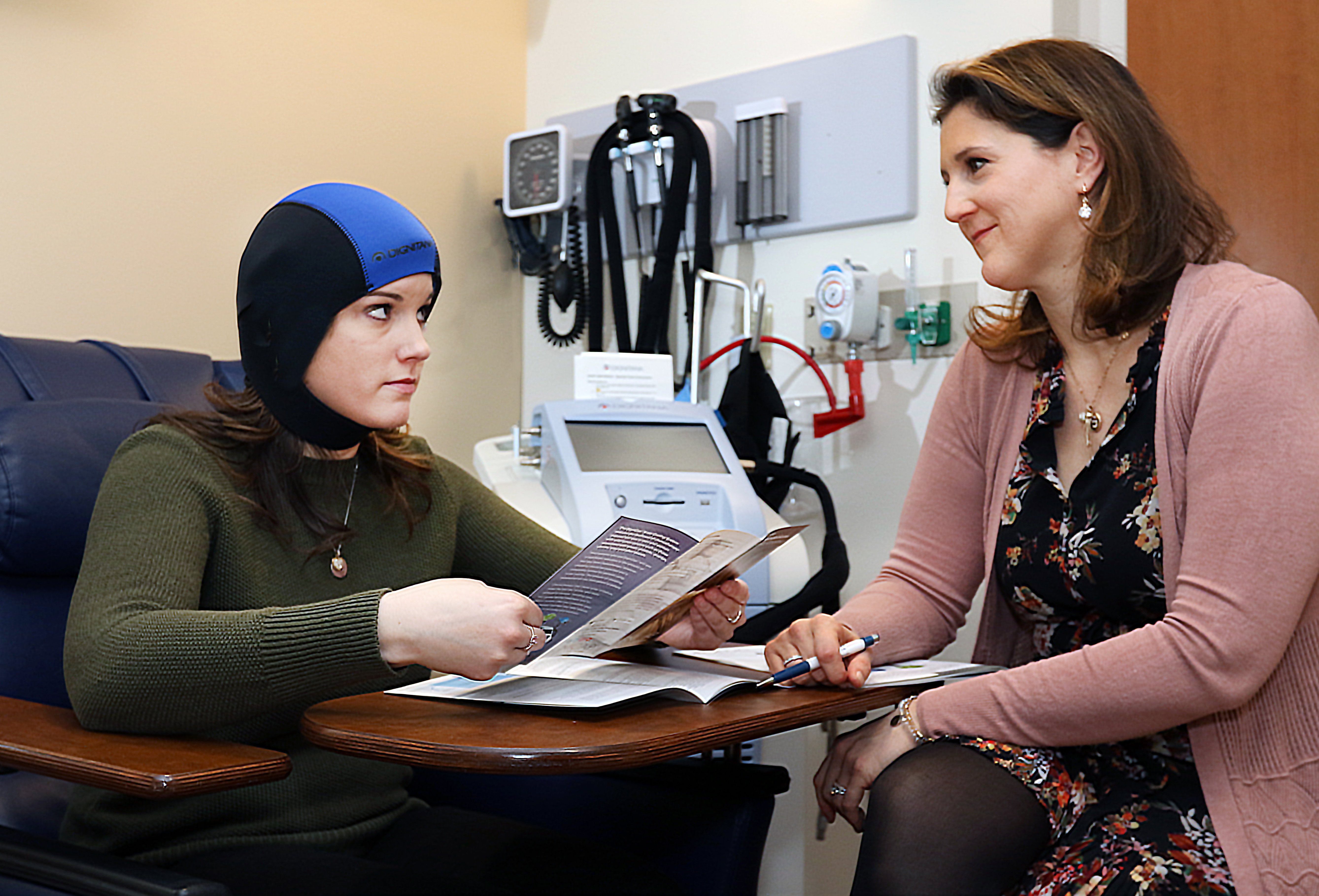Paige Dunion was inspired by the story of Marisa Dolce, the first patient at UConn Health to use the Dignicap® to preserve her hair while she was going through chemotherapy. Little did she think that a month later she would be diagnosed with breast cancer and faced with the prospect of losing her hair.

After consulting with her doctor, Susan Tannenbaum, Chief of the Division of Hematology/Oncology at The Neag Comprehensive Cancer Center at UConn Health, the treatment she chose for her breast cancer would allow her to use the Dignicap, a scalp-cooling system that spares about 70 percent of the patient’s hair.
The Neag Comprehensive Cancer Center at UConn Health is the only hospital in Greater Hartford that offers scalp cooling. It is currently offered for certain breast and lung cancer chemotherapy treatments.
“At the time of my diagnosis my children were 10 and 13 years old. My daughter was just starting high school and it was an awful time for her mom to be sick,” said Dunion. “They were scared I wasn’t okay and I wasn’t going to be okay, so I felt it would be easier on my kids if I didn’t lose my hair.”
“Some patients focus on their survival from cancer and don’t care about their hair loss at all. Others want to maintain their relationships with children and colleagues, and don’t want to be defined by their hair loss,” Tannenbaum said.
She was fitted for a special silicone cap that circulates a cold liquid to cool down the scalp during chemotherapy. The cold reduces blood flow to the scalp area so that less of the chemotherapy drug reaches the hair cells. Cellular metabolism within the hair cells is slowed down.
The treatment added half an hour before her chemo while she was getting her pre-medications. She wore the cap throughout the chemo and then had to wear it for one and half hours after the chemo.
The cap cools the scalp to four degrees Celsius. “I thought I would be really cold and uncomfortable, but it was really quite bearable, says Dunion.” “I would come to chemo with my comfy sweats and a fleece blanket and the chemo chairs are heated so I wasn’t cold.”
When she was first diagnosed someone once said to her that they wanted to make sure they took more from cancer than it took from them. That was her focus during her treatment.
“When you look in the mirror with a cancer that has some way disfigured your body, your already not feeling like yourself, like something has been taken from you already, this allows you to look in the mirror and still look like you,” said Dunion.
Dunion suggests that those who are able to, try it. It doesn’t work for everyone and some people do find it uncomfortable, but she thinks it’s definitely something people should consider if keeping their hair is important to them.
“If you are willing to take the treatments provided to lessen your other effects of cancer such as nausea, sleeping or gastrointestinal issues, this is just another tool to minimize side effects,” says Dunion.
Currently, the Dignicap is not covered by insurance, however a grant provided to the UConn Foundation by the CT Breast Health Initiative helps fund the Dignicap at The Neag Comprehensive Cancer Center at UConn Health.
“We provide a certain amount of funds to promote quality of life for cancer patients,” says Joyce Bray, President of CT Breast Health Initiative. “We want patients concentrating on getting well.”
Dunion’s advice for others is to do what you need to do to get through your fight to the other side. That is different for everybody, but there is no shame in doing what you need to do, even if it is cosmetic.



